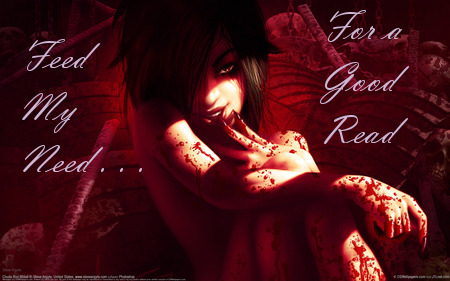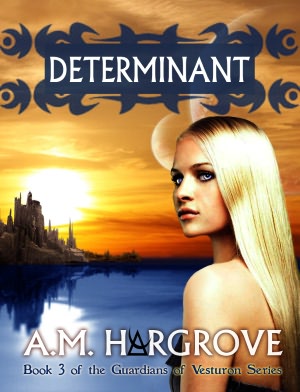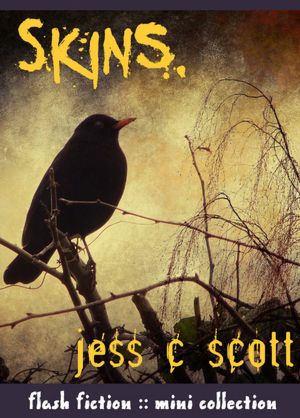Please welcome to Feed My Need, the interesting author, Jefferson Smith.
When and why did you begin writing?
I first received critical acclaim for a recurring fantasy adventure serial I wrote throughout the sixth grade. My teacher and principal both loved it. I submitted my first story to the short-fiction market while in the tenth grade, thus securing my first official rejection.
But to be honest, I started writing at about the same time I learned to print and I've been doing it ever since. My career as a special effects and animation consultant in Hollywood got in the way for a couple of decades, but I finally found my way back to telling my own stories about seven years ago.
Why do I write? I’ve oftened wondered what it would be like to be a fictional character. Suppose you were a great international spy character, but you were living in the head of a high-school janitor who was working a second job as a night-watchman at the local auto parts factory, so he never had time to write.
Wouldn’t that just twist you up? I mean, here you are, the intended heir to James Bond and Jason Bourne, but this stupid jerk has you trapped inside his head and won’t take the time to let you out where people can meet you and fall in love with your greatness? What a bummer.
Anyway, the answer to your question is that I write because there about 200 such characters living in my head and they’ve taken my wife and children hostage. If I don’t write, they’re going to raise the baby on disco music and Care Bear cartoons.
What was the hardest part of writing your book? What is the easiest?
The easiest part came as a bit of a surprise to me: the ideas. When I first started writing, I kept huge note books where I recorded all kinds of stuff: things to have characters say, cool turns of phrase, funny situations, whatever. I was terrified that I would lose those ideas and that my writing would suffer as a result, so I was obsessed with recording every fragment and whimsy that came my way. But then a really awesome thing happened – I forgot to refer to those notes.
When I finished Strange Places, it was full of all those kinds of things – weird, funny, heart-breaking. All of it. And not one of those bits came out of my stupid notebooks. I learned that I can trust myself to be creative when I’m writing – to come up with the bits I need, when I need them. Sure, sometimes I go back in a 2nd or 5th draft and have a great idea that didn’t occur to me the first time around, so I add it. But I don’t have to horde my ideas when they happen. The fountain is right here inside me, and it shows no signs of running dry any time soon.
Of course, I’ll be hanging onto those old notebooks though. I still live in fear that one day the fountain will run dry. And if that ever happens, I like to think I’ll still be able to work based on all the stuff I’ve crammed into the notes.
The hardest part of writing for me? Coming home. When I’m writing, I spend days on end, deeply immersed in fascinating worlds filled with strange and intriguing people and situations. I create characters – fully enfranchised people, from my point of view – to populate these worlds; people who fascinate me and whose circumstances intrigue me.
And then I spend week after week conceiving grievous calamities with which to beset them. In the process, I fall in love – with the people, with the places and with the cultures that they reveal to me, and yes, even with my villains. My journeys with these new companions are not always pleasant – much of the time I spend in their company is filled with stress and anxiety – but those experiences are always rich and I learn a great deal along the way.
So at the end of a writing day, when it’s time to return to my mundane life, filled with bills and grocery shopping, yard work and home repair – I find myself reluctant to go back. I love my wife and my children, but I know that they can exist without me. My story worlds, however, cannot. When I leave for the day, they freeze in place, their sun goes out, and not a single breath can be drawn among them until I return.
It is an awesome responsibility to bear.
What music do you listen to while you write?
Actually, it may seem a bit odd, but as part of my background “research,” I compose musical scores for each culture and major event in my books. So this becomes the music I listen to while I’m writing scenes set in that culture. I find that creating a musical theme for each specific society helps me to get a feel for their world. This process helps me get inside the emotional center of what’s going on. By the time I get to actually writing that chapter or scene, I’ve already experienced the emotional arc of the events and I am much more able to convey the experience.
What inspires you?
There’s a quote from Strange Places that I think says it all: “Magic is wonder, wonder is magic. To use it, one must maintain an aspect of delight in all the nuances of a thing’s existence. … It is this wonder at the world around us that nourishes the tree of magic within us. That is why the words we sing are called ‘charms.’ We truly allow ourselves to be charmed by the beauty of the world.”
I live every day in a world filled with such beauty, and these daily magics are the things that inspire me. Children laughing in the park, wet coffee grounds sliding down the garbage pail, the knocking of tree branches against my window when the wind blows. Life is magic. All of it.
Do you have any hidden talents?
No, but only because I’m too shameless to hide them. In fact, I have a habit of putting them on display, even when they aren’t actually “talents.” I earned my spending money in highschool working as a syndicated cartoonist. I spent some time doing stand-up comedy when I was in university, and I then worked for 10 years in the Hollywood special effects software industry, helping to create some very memorable scenes in a number of very popular films. I have also dabbled in music and song-writing since childhood.
A few years ago, I took all of these interests and went back to school, where I completed a PhD program in Computer Science, researching ways to design computer software that would help people be more creative when they are using computers in artistic ways. My latest challenge in this area has been to find ways to help writers be more creative when they are writing fiction. And of course, aside from all this researchy stuff, I still write a lot.
What are your current projects?
When my oldest daughter was first born (20 years ago), I wrote a fantasy book for pre-schoolers. I read that book to all four of my kids as they were growing up and it has become something of a family tradition. Last year, I put a call out on Twitter and found an amazing young artist to work with, and we are now almost finished the art that will go with my story.
That book is about an only child who lives in a subdivision where every family is royal and they all live in castles, with little white picket fences around them. Very bizarre, but a lot of fun. But being an only child, Princess Brinnameade is very lonely. The story is about the rather unusual way she solves her loneliness problem. It should be released this coming winter.
And of course, I am working feverishly on completing the second book in the Finding Tayna series, called Strange People, which is also due out this winter.
What book are you reading now?
I have been reading a lot lately. I recently got caught up on Rothfuss’s excellent Kingkiller Chronicles, and devoured Michael J. Sullivan’s Riyria Revelations series. I also read an awful lot of unpublished work, since I now help out my own publisher, Indie Ink Publishing, by assessing some of their fiction submissions.
Quick: Vampires or Shapeshifter? Why?
I’m going to be unpopular and say “neither.” I totally understand that readers fall in love with particular types of characters and then want to fill themselves up on as many different versions of those characters as they can find. And I also get that where there’s a demand for these kinds of stories, there will also be a ready army of writers who are interested in supplying them.
But I personally can’t get enthusiastic about placing those kinds of limits on my imagination or my writing. Having to follow the rules established for those character types, and being constrained by the backstories and cultures that come with them? I would much rather explore the weirdness in my own imagination and maybe one day, contribute a character that is so strange and compelling and new that other writers jump on my bandwagon.
Do you have any advice for other writers?
Assuming we’re talking about writers who are just getting started, yes. Accept the fact that you suck. This is normal. When you are starting, you are supposed to suck. It is the process of embracing your suck-a-delic-ness, recognizing it in all it’s technicolor glory, and laboring to do something about it, that makes you better.
To put it another way, until you can see how badly you write, there is no way you can get better. Have you ever tried to mow your lawn with your eyes closed? It’s nearly impossible to do well, and even if you do happen to luck into a good grass day, you have no idea how you did it, so you’re entirely unlikely to be able to repeat it.
The answer is obviously to open your eyes – to learn to see your work critically. To that end, you need to seek out feedback. Critical feedback. Harsh feedback, even. Who cares if the feedback is over-critical? This is a good thing. It brings all the flaws, near flaws and potential flaws in your work into sharp relief, making it easier to see what you need to work on, what areas to improve.
The only feedback that is useless to you is the cheerful positive feedback of well-meaning friends. You can’t learn anything from “Hey, this is great!” and worse, it gives you a false sense that your lawn is in order and ready to be featured in Gnomes & Gardens Quarterly. Cultivate those critics who will be honest and specific with you. It is they who will make you great.
Do you have anything specific that you want to say to your readers?
Yes. Please give Strange Places a try. I promise you’ll have fun. Tayna is a cocky and wickedly funny heroine that I’m just dying for you guys to meet. Imagine that you had lived your entire life in a gloomy orphanage run by cruel nuns only to discover in your teen years that you might not even be an orphan at all. You’d freak, right? “You mean I’ve been washing your laundry and scrubbing your floors all this time, and somewhere I might have parents who actually love me? I am so out of here!”
Well, that’s exactly what happens for Tayna, my razor witted maybe-orphan. But leaving that orphanage proves to be just the beginning of her troubles. Not only does she know nothing about the world outside the walls, but she quickly learns that her family (if they really exist) are not even in our world at all, but in another, mythological world – one she’d never even heard of before that day. How is she supposed to find them there?
So you’ve got this funny but lonely teen, searching for where she belongs, and kicking butt along the way. If she only knew how much her fans loved her, she probably wouldn’t be so miserable, but then again, I wouldn’t have a book, either. (Note to self: don’t tell Tayna how many people out here love her. It would get weird.)
Learn more about Strange Places and the Finding Tayna series
here.
 Raised as a modern-day kitchen slave in an orphanage run by child-loathing nuns, and now stalked by disturbing strangers, thirteen year old Tayna gambles everything on a desperate journey of self-discovery that will lead her to the far corners of two strange and unfamiliar worlds: one filled with shopping malls and televisions, the other with brownies, Djin and magic.
Raised as a modern-day kitchen slave in an orphanage run by child-loathing nuns, and now stalked by disturbing strangers, thirteen year old Tayna gambles everything on a desperate journey of self-discovery that will lead her to the far corners of two strange and unfamiliar worlds: one filled with shopping malls and televisions, the other with brownies, Djin and magic.
Strange Places is the first book in the Finding Tayna series — created for those who want their fantasy to be fun and fantastical, but who need more than just an empty adventure story left lingering on the palate once the action has concluded. Follow teen orphan Tayna, self-proclaimed queen of rejection and protector of the helpless, as she sets out to uncover the truth about who she is and where she comes from, no matter who gets in her way.
And plenty of people do.


















.jpg)